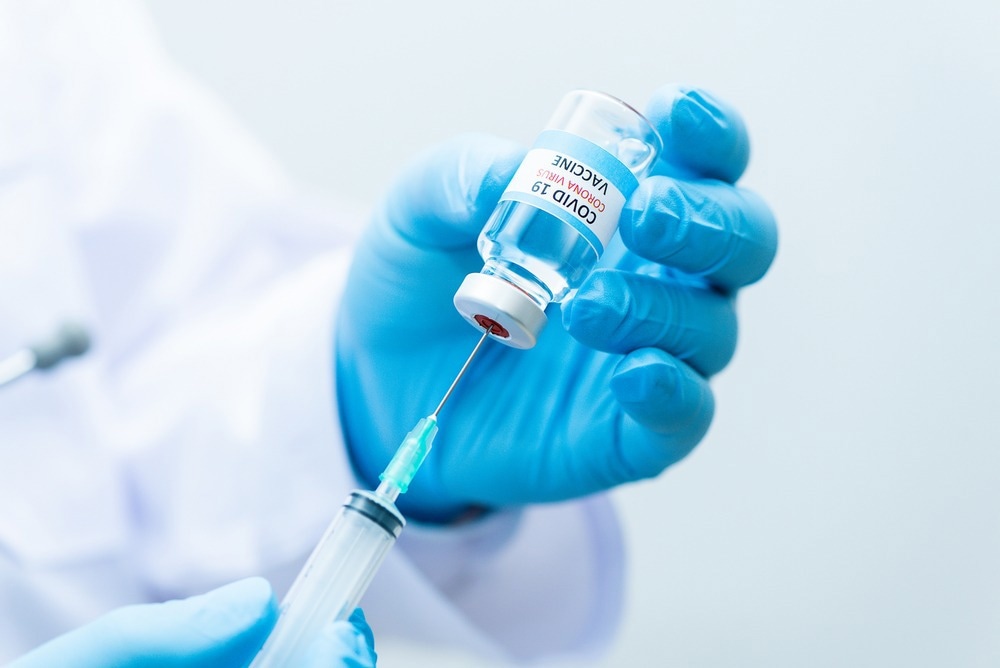In a recent study posted to the medRxiv* preprint server, researchers explored neutralizing antibodies against severe acute respiratory syndrome coronavirus 2 (SARS-CoV-2) Omicron BA.1, BA.2, and BA.5 lineage infected patients.
 Study: Neutralizing Antibody to Omicron BA.1, BA.2 and BA.5 in COVID-19 Patients. Image Credit: Mrz producer/Shutterstock
Study: Neutralizing Antibody to Omicron BA.1, BA.2 and BA.5 in COVID-19 Patients. Image Credit: Mrz producer/Shutterstock

 This news article was a review of a preliminary scientific report that had not undergone peer-review at the time of publication. Since its initial publication, the scientific report has now been peer reviewed and accepted for publication in a Scientific Journal. Links to the preliminary and peer-reviewed reports are available in the Sources section at the bottom of this article. View Sources
This news article was a review of a preliminary scientific report that had not undergone peer-review at the time of publication. Since its initial publication, the scientific report has now been peer reviewed and accepted for publication in a Scientific Journal. Links to the preliminary and peer-reviewed reports are available in the Sources section at the bottom of this article. View Sources
Background
Neutralizing antibodies are essential in eliciting protective immunity against coronavirus disease 2019 (COVID-19). This is evident as emerging studies have reported SARS-CoV-2 Omicron variant infections among convalescent and vaccinated patients since antibodies elicited after infection or vaccination by the ancestral strain did not effectively neutralize Omicron variants. This resulted in the Food and Drug Administration (FDA) recommendation to include the Omicron variant in the SARS-CoV-2 vaccines.
About the study
In the present study, researchers assessed the live virus neutralization titers observed against SARS-CoV-2 WA-1, Delta, and Omicron BA.1, BA.2, and BA.5 lineages in serum samples obtained from Delta or Omicron-infected patients.
The team collected blood samples from a total of 187 patients who were hospitalized due to Delta or Omicron infections between July 2021 and March 2022 at eight US hospitals. Almost 69% of the patients were confirmed as Delta or Omicron infections via sequencing, while the rest were categorized as per the calendar period of variant circulation. Furthermore, the team assessed neutralization titers against BA.5 by collecting samples before the prevalence of BA.5 in the population.
Results
The team observed that 80 patients were unvaccinated, 100 patients were vaccinated with the COVID-19 messenger ribonucleic acid (mRNA) vaccines, and seven received the adenovirus vector vaccine before infection. The study results showed that unvaccinated SARS-CoV-2 Delta-infected individuals displayed a high neutralizing antibody response against the infecting Delta strain.
Additionally, the Delta patients showed comparatively six-fold lower titers against WA1, 60-fold lower against BA.1, and 22-fold against BA.2. On the other hand, vaccinated patients exhibited neutralization titers that were comparable between WA1 and Delta. This indicated that memory B cells were released due to the WA1 vaccine. Furthermore, the neutralization titers were 17-fold lower against BA.1 and nine-fold against BA.2. Overall, the findings indicated that vaccinated and unvaccinated Delta patients elicited remarkably lower neutralizing titers against Omicron.
The team also noted a distinct pattern among Omicron-infected individuals irrespective of their corresponding vaccination status, with a more robust neutralizing antibody response elicited against BA.1 and BA.2 infections. Although there were some differences between individual samples, a clear trend was observed depicting a more balanced and broader antibody response with neutralization titers comparable to that of BA.1, BA.2, and Delta.
Moreover, while neutralization titers elicited against vaccine strain, WA1 was considerably higher than that of BA.1 and BA.2 variants among vaccinated Omicron-infected patients. Furthermore, the ratio of neutralization titers of BA.1 to that of WA1 was higher among Omicron patients than Delta patients from both vaccinated and unvaccinated cohorts.
Moreover, among the Omicron-infected patients, the team observed detectable levels of neutralization of BA.5, which was lower than BA.1 and BA.2 in the vaccinated and unvaccinated cohorts. The noted reduction in neutralization activity against BA.5 infection in patients infected with BA.1 or BA.2 accounted for the inclusion of BA.5 in the COVID-19 vaccine.
Conclusion
Overall, the study findings showed that SARS-CoV-2 Omicron infection of vaccinated or unvaccinated patients elicited a more balanced and proportional neutralizing antibody response to Omicron lineages, thus supporting the inclusion of Omicron lineage strain in the COVID-19 vaccine.

 This news article was a review of a preliminary scientific report that had not undergone peer-review at the time of publication. Since its initial publication, the scientific report has now been peer reviewed and accepted for publication in a Scientific Journal. Links to the preliminary and peer-reviewed reports are available in the Sources section at the bottom of this article. View Sources
This news article was a review of a preliminary scientific report that had not undergone peer-review at the time of publication. Since its initial publication, the scientific report has now been peer reviewed and accepted for publication in a Scientific Journal. Links to the preliminary and peer-reviewed reports are available in the Sources section at the bottom of this article. View Sources
Journal references:
- Preliminary scientific report.
Linderman, S. et al. (2022) "Neutralizing Antibody to Omicron BA.1, BA.2 and BA.5 in COVID-19 Patients". medRxiv. doi: 10.1101/2022.08.21.22278552. https://www.medrxiv.org/content/10.1101/2022.08.21.22278552v1
- Peer reviewed and published scientific report.
Linderman, Susanne L., Lilin Lai, Estefany L. Bocangel Gamarra, Max S. Y. Lau, Srilatha Edupuganti, Diya Surie, Mark W. Tenforde, et al. 2022. “Neutralizing Antibody Responses in Patients Hospitalized with SARS-CoV-2 Delta or Omicron Infection.” The Journal of Clinical Investigation 132 (23). https://doi.org/10.1172/JCI164303. https://www.jci.org/articles/view/164303.